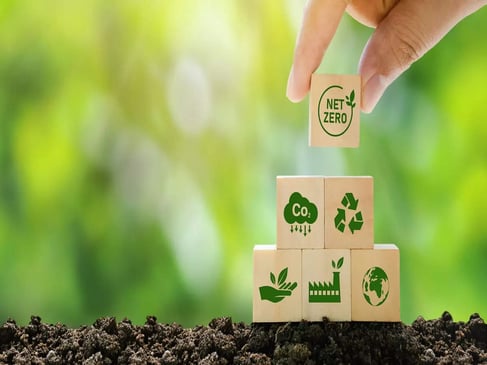🌱Advancing Sustainability in South East Asia: A Deep Dive into Recent Regulations & Impact
Southeast Asia, spurred by initiatives like the BCG (Bio-Circular-Green) policy and Thailand's single-use plastic ban, is undergoing a sustainability revolution. With global businesses emphasizing sustainability and Singapore's carbon tax driving change, the region faces a pivotal shift. Early adoption of these changes offers businesses a first-mover advantage, ensuring growth and long-term viability in the evolving global sustainability landscape
BUSINESS GROWTHSUSTAINABILITY
Prateek Jain
12/27/20232 min read


In response to global sustainability imperatives, South East Asia, with a focal point on Thailand, has made commendable progress in implementing regulations to shape a sustainable future. The repercussions of these initiatives transcend national borders, particularly affecting businesses in the region. Notably, international companies, predominantly from Europe and the US, are prioritizing sustainable practices in their supply chains, presenting a critical shift in global business dynamics.
Recent Regulatory Landscape:
The BCG Policy Initiative: Thailand's dedication to sustainability is evident through the BCG (Bio-Circular-Green) policy initiative, harmonizing sustainable goals with investment promotion policies to attract interest in environmentally conscious sectors [6].
Single-Use Plastic Ban: As a response to environmental concerns, the Thai government's ban on single-use plastic bags reflects a steadfast commitment to curb plastic pollution [3].
Singapore's Carbon Tax: A Game-Changer for Industries In Singapore, the introduction of a carbon tax is a pivotal measure supporting the nation's net-zero targets and climate mitigation efforts [2]. This tax sends a robust economic signal, significantly influencing businesses and molding their strategies to align with sustainable practices. The latest government update outlines a progressive increase in the carbon tax (S$25/tCO2e in 2024 and 2025, S$45/tCO2e in 2026 and 2027, with a view to reaching S$50-80/tCO2e by 2030), urging SMEs to promptly embrace sustainability principles and showcase improvements [2].
International Influences: Necessity for Compliance in SEA Businesses
Global Supply Chain Expectations: Growing demands for sustainability in supply chains from European and US companies compel businesses in Thailand and across SEA to adhere to international standards, a prerequisite for securing lucrative contracts [1].
European and US Perspectives: The future of international sustainability standards in Southeast Asia hinges on adjustments made by local businesses and countries to align with global expectations, especially considering the impact on external contract acquisition [1].
Our Opportunity to Assist: In this dynamic landscape, our expertise in sustainable practices uniquely positions us to guide SEA businesses, including those in Thailand, in not just meeting but exceeding regulatory expectations. From initiating global reporting standards to developing eco-friendly supply chain strategies and implementing green manufacturing processes, we stand prepared to propel companies toward a sustainable and competitive future.
🌐Sources
The future of international sustainability standards in South East Asia - Business Times
Singapore's Carbon Tax - National Climate Change Secretariat
The Thai government's effort for sustainable tourism - The Colours of Thailand
Thailand's sustainability policy: getting its act together - The Economist Intelligence Unit
Evolve With Us Now!
EvolveWithUsNow is a unit of Sharpen Pte Ltd, Singapore
